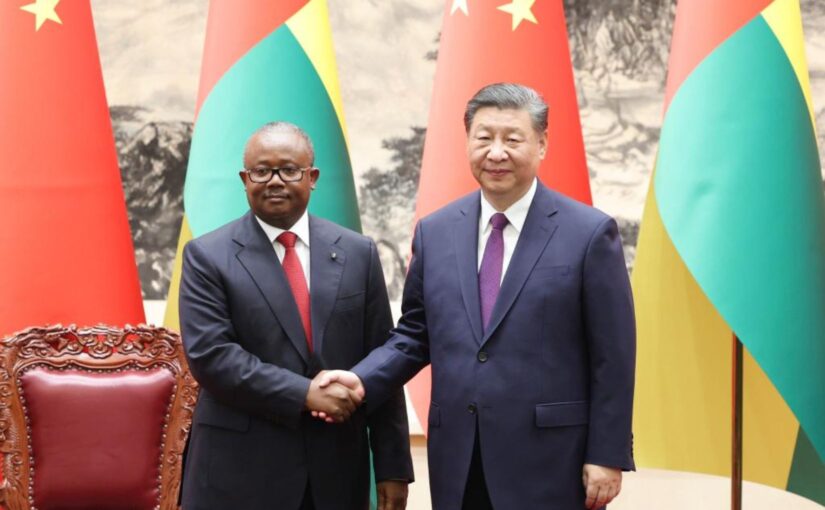The Commission takes this opportunity to condemn all forms of violence against journalists, be it physical threats, murder, kidnapping, hostage-taking, intimidation, arbitrary detention and torture, as well as online harassment
The African Commission on Human and Peoples’ Rights (the Commission) joins the international community celebrating the International Day to End Impunity for Crimes against Journalists, which is commemorated annually on 02 November.
In December 2013, the UN General Assembly adopted Resolution A/RES/68/163 on the safety of journalists and the issue of impunity, giving due regard to the fact that the work of journalists often puts them at risk of intimidation, harassment and violence. In proclaiming 02 November as the International Day to End Impunity for Crimes against Journalists, the General Assembly unequivocally condemned all attacks and violence against journalists and media workers and resolved to promote a safe and enabling environment for journalists to perform their work independently and without undue interference.
Journalists play a fundamental role in society, especially with regards to freedom of expression and the free flow of information. Silencing journalists stifles not only the flow of information, but it also impacts citizen’s ability to exercise their democratic rights. This important role is reflected in the Declaration of Principles on Freedom of Expression and Access to Information in Africa (the Declaration), adopted by the Commission to elaborate on the scope of Article 9 of the African Charter on Human and Peoples’ Rights, which recognizes ‘the key role of the media and other means of communication in ensuring full respect for the right to freedom of expression, promoting the free flow of information and ideas, assisting individuals in making informed decisions and facilitating and strengthening democracy.’ [1]
In Africa, attacks against journalists continue to be on the rise and there has also been a rising trend of these attacks, apart from being perpetrated physically are also increasingly being conducted online. Digital attacks against journalists occur in a wide range of formats which are constantly evolving as new technologies emerge. The rise of digital violence, which is increasingly gendered disproportionately affecting women, with female journalists facing the brunt of this rising phenomenon. Silencing women journalists constitutes an attack on democracy.
Women in the media are especially at risk, facing targeted and disproportionate attacks in both digital and physical spheres. [2] According to the International Center for Journalists, 73% of female journalists surveyed experienced online violence, with 25% of the messages they received threatening physical violence and 18% threatening sexual violence. [3]
‘While the digital realm should be a space of innovation and empowerment, it has become a battleground where women face harassment, intimidation, and violence.’ [4] Regrettably, the digital revolution has both exacerbated existing forms of gender-based violence, such as sexual harassment, stalking, hate speech, misinformation, defamation and impersonation and created new forms of abuse such as hacking, astroturfing, video and image-based abuse such as doxing, cyberbullying and online grooming. [5] In addition, ‘AI-driven threats, including the spread of gendered disinformation, surveillance, deepfakes and other forms of harassment have developed with this emerging issue, also known as technology-facilitated gender-based violence (TFGBV), become alarmingly prevalent particularly with the rise of generative artificial intelligence.” [6]
In addition to constituting violations of Article 9 of the African Charter, which guarantees individuals the right to receive information, as well as the right to express and disseminate information, these attacks against women undoubtedly constitute violations of the Protocol to the African Charter on Human and Peoples’ Rights on the Rights of Women in Africa (the Maputo Protocol), which defines violence against women to include acts causing psychological or economic harm, or threats to undertake arbitrary restrictions on or deprivation of fundamental freedoms. In addition, its Article 3 guarantees the right to dignity and calls on States to implement appropriate measures to ensure the protection of every woman from all forms of violence particularly sexual and verbal violence.
This is buttressed by the Declaration which provides in Principle 5, that “the exercise of the rights to freedom of expression and access to information shall be protected from interference both online and offline, and States shall interpret and implement the protection of these rights in this Declaration and other relevant international standards accordingly.” Furthermore, Principle 20(6) requires States to “take specific measures to ensure the safety of female journalists and media practitioners by addressing gender-specific safety concerns, including sexual and gender-based violence, intimidation and harassment.”
In view of this emerging concern, the Commission adopted Resolution ACHPR/Res.522(LXXII)2022 on the Protection of Women Against Digital Violence in Africa [7] which called on States to, inter alia, review or adopt legislation aimed at combating all forms of digital violence, in addition to expanding the definition of gender-based violence to include digital violence against women including cyber-harassment, cyberstalking, sexist hate speech amongst other related violations.
During this year’s commemoration of the International Day to End Impunity for Crimes against Journalists, the Commission takes this opportunity to condemn all forms of violence against journalists, be it physical threats, murder, kidnapping, hostage-taking, intimidation, arbitrary detention and torture, as well as online harassment. In addition, in view of the pressing concern which has emerged during the digital era disproportionately affecting female journalists, the Commission unreservedly condemns this form of violence and calls on States to take concrete measures, such as the adoption of gender-responsive laws and policies in order to ensure an enabling environment in which all female journalists can work without fear of any form of harassment and intimidation. In addition, these violations, which include threats of sexual assault and physical violence, abusive language, harassing private messages, threats to damage their professional or personal reputations, digital security attacks, misrepresentation via manipulated images and financial threats, should be consistently investigated, with the perpetrators prosecuted and redress provided to the victims, including medical and psychological support. Equally important are public advocacy campaigns through which States can raise awareness on digital violence to ensure the protection of the rights of persons who face these violations.
Online assaults targeting female journalists pose one of the most concerning threats to media freedom and the democratic process, which aids and abets impunity for crimes against journalists.
Addressing this violence requires an intersectional approach involving a wide range of stakeholders, including States, social media platforms, journalist associations, civil society organizations among others.
Tech companies, through which these abuses are circulated, are slow to support journalists who are being targeted, let alone block the attackers.
The Commission remains committed to working with all stakeholders to address this, and all forms of crimes against journalists in order to ensure real media freedom in Africa. Ending impunity for crimes against journalists remains a challenge of modern times.
Unfortunately, threats of violence and attacks on journalists are not properly investigated. This impunity emboldens the perpetrators of these crimes, whilst at the same time has a chilling effect on journalists.
African States should therefore vocally condemn all attacks on journalists whenever they occur and whether they occur online or offline, vigorously investigate such attacks and judicial authorities should investigate and expedite prosecution of these crimes against journalists.
Tech companies should increase risk assessments about online threats against journalists and take decisive action to deal with such rights violations via their service. Media actors have to better mobilise when there are such threats against their colleagues and campaign for justice.
Civil society should demand that the rule of law applies with regard to the right of journalists, and finally society as a whole should recognise that the safety of journalists contributes to them having access to reliable and credible information. When all these actors work together, then the message will be sent to society at large that such attacks on journalists will not be tolerated. This will also contribute to creating a safe and enabling environment for journalists to perform their work independently and without any interference is a public good for society at large.
Journalists are the purveyors of credible information which contributes to having a functioning democracy. By ending the impunity for crimes against journalists, we are fortifying the flow of information and consolidating democracy. Enditem
Source: APO
Share Us




